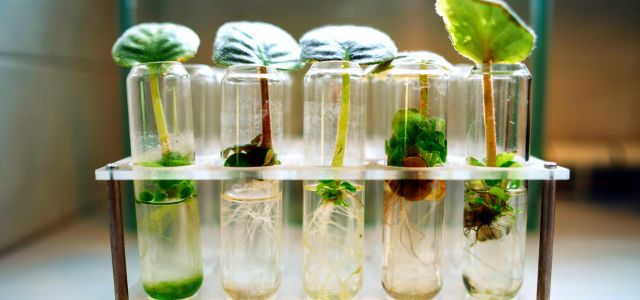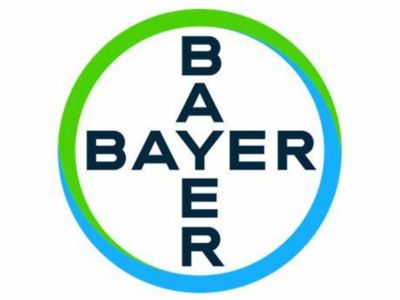Biotechnology is one of the key technologies with a significant potential to boost Europe’s competitiveness, whilst providing solutions that contribute to reaching the EU’s sustainability ambitions, according to many including the EU Commission.
A new regulation for plants produced by new genomic techniques (NGTs) such as targeted gene editing (so-called NGT-based plants), is needed as an important milestone in enabling, fostering, and therewith creating a growing economy and more employment in Europe’s biotechnology sector.
It was a prima facie positive event that the European Parliament voted in favor of a new framework to regulate the release and use of NGT plants in agriculture in early February. However, turning the positive effect of the new regulation to zero, Members of the European Parliament (MEPs) amended the European Commission’s proposal and introduced, with no connection to the regulatory gist of the framework and therefore even misplaced, a new full exclusion from patentability for all NGT based plants – and further even for plants obtained by random mutagenesis techniques or cell fusion. This deserves a lot of criticism.
Without adequate patent protection, companies in Europe will not invest in NGTs, the pace of innovation will slow down, and the EU’s goal of fostering competitiveness with stronger biotechnology contributions will be grounded. For a successful introduction of NGTs, both adequate regulatory requirements, as put in place in this framework, and patent protection independent of each other are crucially needed. The regulatory framework serves to protect health and the environment, whereas the patent system is designed to stimulate innovation and the economy, so they fulfill different tasks and should be treated separately.
New technologies such as gene editing and NGTs offer new ways of innovation: scientists can make very specific, targeted changes in a plant to develop new varieties with desirable characteristics. Like all new complex technologies, they require significant R&D investments to develop such varieties based on NGT. The ability to protect newly created traits with patents is essential to secure sustainable investments into R&D to enable innovative crops based on such new technology that help farmers keep up productivity in times of climate change and to introduce more sustainable cropping systems.
Fatal signal
Patent bans are therefore a fatal signal.
MEPs said that the ban may help to avoid new dependencies of farmers and breeders from patent holding companies. But like in many other instances, patent bans are misperceived to be a solution and end up being detrimental to further innovation. A patentability ban will result in less to no further developments specific to agricultural conditions in Europe, lacking adequate compensation for the efforts.
Plant breeding is a highly regional topic. Seeds produced for the mid-west of the US frequently don´t fit for Europe or Latin America, to mention just one example. With no adequate patent protection, it is hard to see why anyone would develop and work on specific regional solutions for Europe applying NGTs. Plant variety protection falls too short. Patents are the only effective legal tool to protect new traits.
The breeders’ exemptions and the general research exemption already implemented by many EU member states and being part of the new unitary patent system already enable free experimentation, breeding, and development of new plants. Together with an equitable and fair licensing policy, enabling the commercialization of new plants, patents do not block access but stimulate innovation. Dissemination of innovation to many breeders will be enabled by such a system under patent protection providing more choice and value-added solutions for farmers. Patent protection secures a level playing field between competing companies, and fair licensing is prone to doing the same for small market players and larger corporations.
Several voluntary initiatives have already been launched across the crop sector facilitating access to patented materials. Furthermore, the EU’s Biotech Directive entitles farmers to save seeds under the same conditions as for plant variety protection. Small farmers do not have to pay anything.
A solution needs to be reached that appropriately balances the importance for small market participants to gain access to genetic material while respecting the indispensable patent protection for trait innovators. This is the only option to give NGT technology a chance to deliver on its promises in Europe for the benefit of all. We should first wait for the publication of a much-needed fact-based study into NGTS that has been announced by the EU Commission. Excluding these technologies from patentability is certainly not the solution.

Written by Dr Jörg Thomaier
Head of IP, Bayer Group
You may also like…
Welcome to Hangzhou! The AIPPI World Congress 2024
AIPPI World Congress 2024 opened its doors in Hangzhou, China, on Saturday, 19 October. All attending were warmly...
Crystalizing plant variety infringement protection in India
On September 20, 2024, the Delhi High Court ruled in Pioneer Overseas Corporation v. M/s Evercrop Agro Science &...
German criminal court finds three defendants guilty of fraud for sending misleading invoices to EUIPO customers
In September 2024, the Munich Court (Germany) found three defendants guilty of commercial gang fraud for sending...
Contact us to write for out Newsletter














